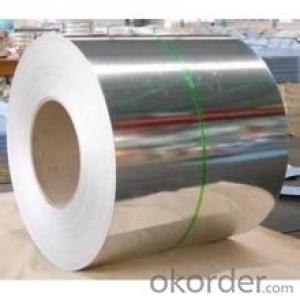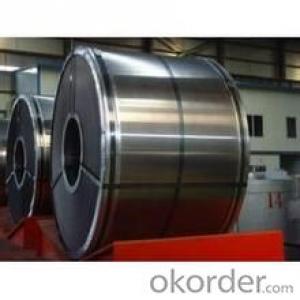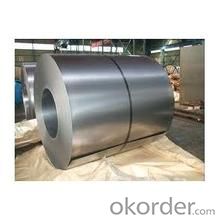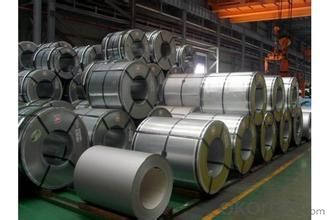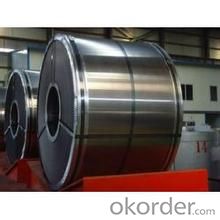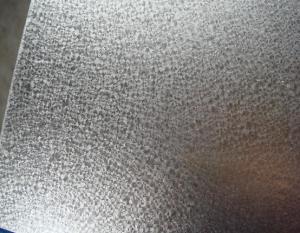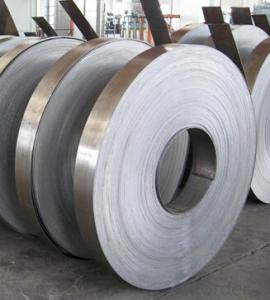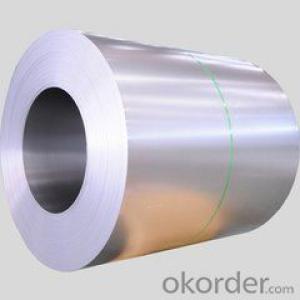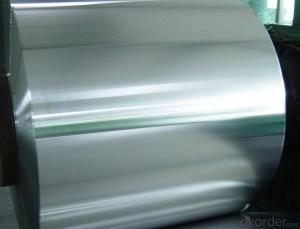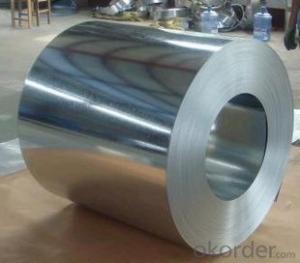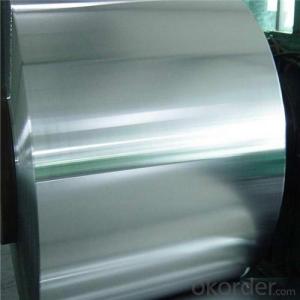HOT-DIP ALUZINC STEEL SGCC in Good Qualitty
- Loading Port:
- Tianjin
- Payment Terms:
- TT OR LC
- Min Order Qty:
- 30 m.t.
- Supply Capability:
- 5000000 m.t./month
OKorder Service Pledge
OKorder Financial Service
You Might Also Like
Hot-dip aluzinc steel sheet is substrated on cold rolled steel (CRC) in various strength and specification. Coating composition is 55% aluminum in weight ratio, 43.4% zinc, and 1.5% silicon, with excellent corrosion and heat resistance performance.
Product Description:
THICKNESS:0.18mm-1.5mm
WIDTH:900mm-1250mm
COATING MASS:AZ30-AZ150
SPANGLE:Minimized Spangle,Zero Spangle
SURFACE TREATMENT:N0on or Chromated,Non or Oiled,Non or Anti Finger Print
COIL INNER DIAMETER:508mm/610mm
COIL WEIGHT:3mt-7m
Applications of our Galvalume Coil:
Galvalume Coil widely used for roofing products, It is also the ideal base material for Prepainted Steel Coil.
1. roofing
2. gutters
3. unexposed automotive parts
4. appliances
5. furniture
6. outdoor cabinetry
Production of cold formed corrugated sheets and profiles for roofing, cladding, decking, tiles, sandwich walls, rainwater protective systems, air conditioning duct as well as electrical appliances and engineering.
- Q: How are steel coils used in the manufacturing of lighting fixtures?
- Steel coils are used in the manufacturing of lighting fixtures as they provide a sturdy and durable structure for the fixtures. The coils are typically shaped and formed to create the desired shape and design of the lighting fixture, ensuring its strength and stability. Additionally, the steel coils can be coated or painted to enhance the aesthetics of the fixture, making it more visually appealing.
- Q: How are steel coils coated for specific applications?
- Steel coils can be coated for specific applications through various methods such as hot-dip galvanizing, electro-galvanizing, or applying organic coatings like paints or lacquers. These processes help enhance the steel's corrosion resistance, improve its appearance, and provide specific properties required for different applications.
- Q: I want to buy a chain that will last a long time and that i can wear ALL the time.What are the disadvantages to stainless steel jewelry?Does it look as good as silver?Is there much diference in apperance?
- Benefits Of Stainless Steel Jewelry
- Q: How are steel coils used in the production of agricultural implements?
- Steel coils are used in the production of agricultural implements as they are formed and shaped into various components such as blades, tines, or plowshares. These sturdy and durable steel components are then assembled into agricultural machinery like plows, cultivators, or harrows, which are essential for tasks like tilling soil, planting crops, and harvesting. The strength and resilience of steel make it an ideal material for agricultural implements, ensuring they can withstand the demanding conditions of farming and contribute to efficient and effective agricultural operations.
- Q: How are steel coils inspected for quality control?
- Steel coils are inspected for quality control through various methods. One common method is visual inspection, where trained professionals visually examine the coils for any surface defects, such as scratches, dents, or discoloration. Additionally, non-destructive testing techniques like ultrasonic testing are used to detect any internal defects, such as cracks or voids. Dimensional measurements are also taken to ensure the coils meet the required size and thickness specifications. These comprehensive inspections help ensure the overall quality and integrity of steel coils before they are used in various industries.
- Q: What are the pros and cons to selecting a graphite shaft sand wedge over steel shaft?
- The way to resolve the selection is to go with the shaft that matches the other clubs in your set. If you have steel shafted irons go with steel. You will find the similar feel when you hit shots is most important.
- Q: What is the difference between cold rolled strip and cold rolled steel coil?
- Cold rolled steel strip: the width is below 900mm! Cold rolled steel coil: the width is above 1000mm! Materials and purposes are not very different, basically the same!
- Q: I want to hear from those who own a scandium revolver. I know that scandium makes for a much lighter gun than steel, but how do they hold up durability-wise? Is their lifespan shorter than a comparable steel revolver?
- You know, I've kind of wondered about that too. Admittedly Scandium is a rather durable material, no contest there... but from the perspective of a machinist who has played with said Scandium in the past... it seems to *flake* on the blanchard grinders... hell, even fly cutting it acts kinda weird. I like steel because it's predictable, it has a fatigue point that is predictable... and when that fatigue point is met (limits of elastic modulus met by repetitive stress/strain exertions) it's fairly obvious. You get cracking, warping, and sometimes stretch marks... (yes, you can get *stretch marks* on steel). Scandium... I don't know. I don't know if it'll start cracking when it finally fatigues... or if it'll just let go all at once. Anyways, I don't think I'd worry too much about your revolver. It'll hold up I'm very sure (they've been around for years and people have put many, many rounds through them). Call me odd, but I'm a fan of steel. It's conventional, inexpensive (relatively speaking), and utterly durable.
- Q: My uncle got me some new 'Nam style jungle boots at the px at Fort Worth JSB, and he told me that back in Vietnam, they used to issue guys steel sole boots, that had a sole reinforced with a steel plate, as punji stick d-fence. Is this true, it sounds logical, but I can't figure out how a steel plate in the sole would work. My uncle is kind of a BS'er, plus he wasn't even in Vietnam, much less the Infantry, much less combat, but he was in USAF at the time.
- The steel plate in the boot was about 5 cm long and 2 cm wide, it was located in the midsection of the boot sole but did not cover the heel. Prolonged wear, the humidity and soakings eventually caused the steel piece to break out of the mounding in the inside of the boot and cause blisters.
- Q: In terms of weight to strength titanium is stronger. But is it stronger than mild steel? If it is stronger, how much stronger is it?
- Yes ,i think so. The two most useful properties of the metal form are corrosion resistance, and the highest strength-to-weight ratio of any metal.[4] In its unalloyed condition, titanium is as strong as some steels, but 45% lighter.[5] There are two allotropic forms[6] and five naturally occurring isotopes of this element; 46Ti through 50Ti, with 48Ti being the most abundant (73.8%).[7] Titanium's properties are chemically and physically similar to zirconium.
Send your message to us
HOT-DIP ALUZINC STEEL SGCC in Good Qualitty
- Loading Port:
- Tianjin
- Payment Terms:
- TT OR LC
- Min Order Qty:
- 30 m.t.
- Supply Capability:
- 5000000 m.t./month
OKorder Service Pledge
OKorder Financial Service
Similar products
Hot products
Hot Searches
Related keywords
